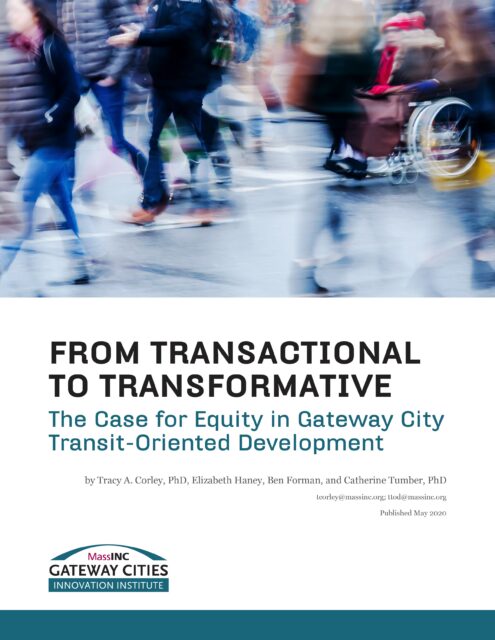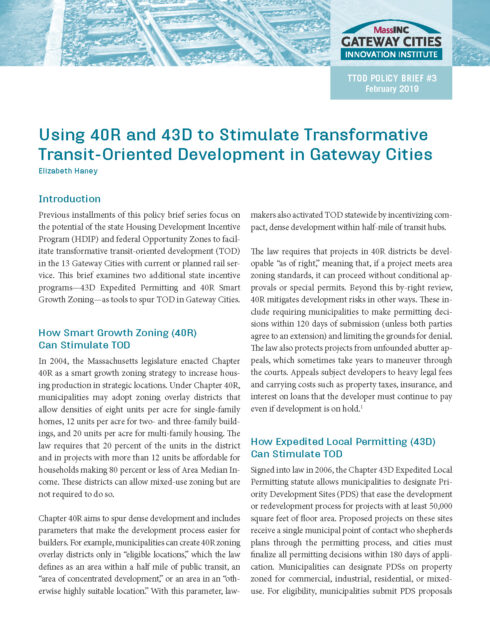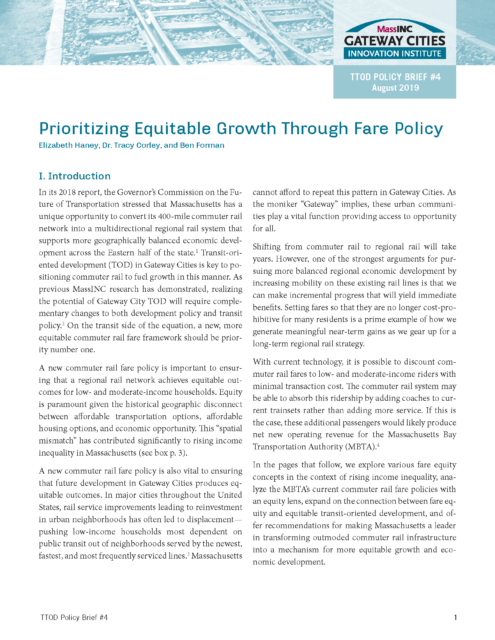Elizabeth Haney is a Research Associate working with Ben Forman and Tracy Corley on inclusive transit oriented development strategies in Massachusetts’ Gateway Cities. She is a Master’s of City Planning Candidate at the Massachusetts Institute of Technology and received her Bachelor’s degree in History from Boston College. She has worked at MassDevelopment with the Transformative Development Initiative team as well as at the Cambridge Housing Authority on their Affirmatively Furthering Fair Housing Plan. Prior to MIT she spent 5 years working on HomeKeeper, a Salesforce app program of Capital Impact Partners, and later Grounded Solutions Network. In her work on HomeKeeper, Elizabeth supported community land trusts, Habitat for Humanity affiliates as well as municipal housing departments in their work to steward permanently affordable homeownership units, as well as to measure their impact. Elizabeth trained HomeKeeper users as well as led software product development, including efforts to make HomeKeeper the first HUD certified housing counseling management system on Salesforce. Prior to her time working on HomeKeeper, Elizabeth was a Jesuit Volunteer working on climate change policy at the Center of Concern and as a homebuyer assistant at SHARE Community Land Trust in Leavenworth, WA.
-
From Transactional to Transformative
The Case for Equity in Gateway City Transit-Oriented Development
May 18, 2020
-


